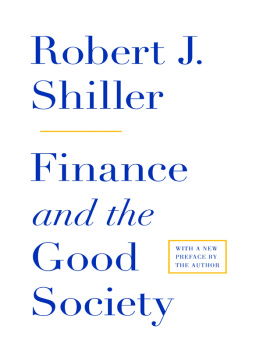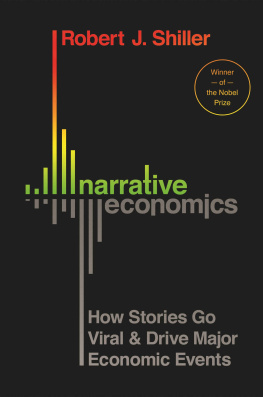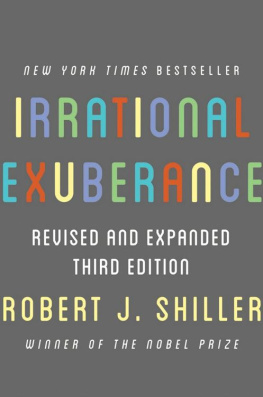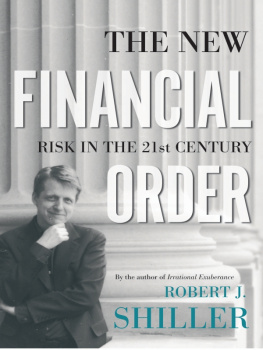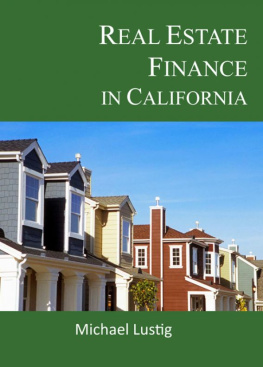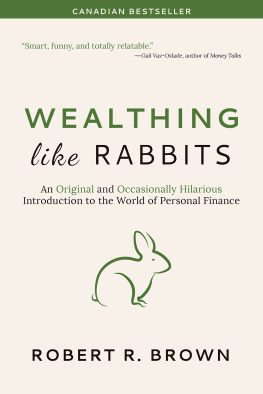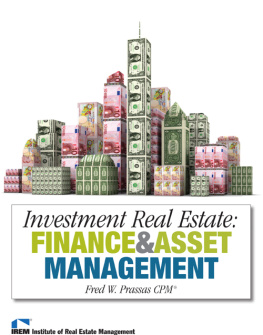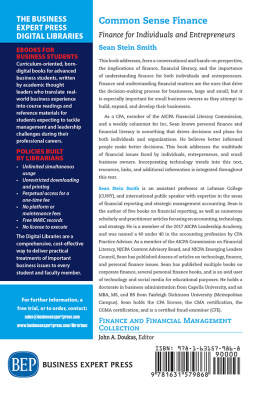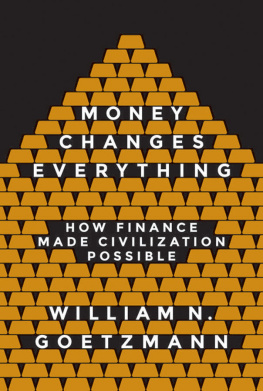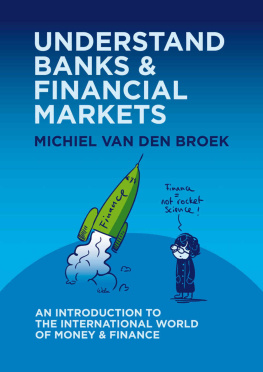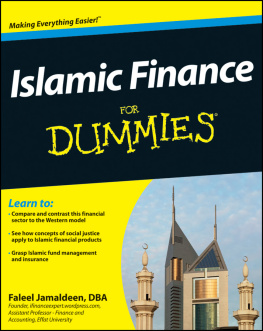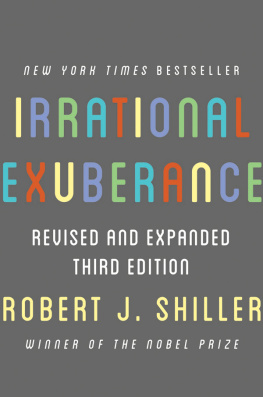
Finance and the Good Society
Finance and the Good Society
_______________
Robert J. Shiller
With a new preface by the author
Princeton University Press
Princeton and Oxford
Robert J. Shiller is the Arthur M. Okun Professor of Economics at the Cowles Foundation for Research in Economics and professor of finance at the International Center for Finance, Yale University. He is a research associate at the National Bureau of Economic Research in Cambridge, Massachusetts. He is also the co-creator of the Standard & Poors / Case-Shiller Home Price Indices, and he serves on the index committee for these indices at Standard & Poors, New York. At the CME Group in Chicago he is a member of the Competitive Markets Advisory Council. He is currently engaged in the joint analysis and development of exchange-traded notes with Barclays Capital in London. He writes regular columns for Project Syndicate and the New York Times. The views expressed in this book are solely those of the author and do not necessarily reflect the views of these institutions.
Copyright 2012 by Princeton University Press
Published by Princeton University Press, 41 William Street, Princeton, New Jersey 08540
In the United Kingdom: Princeton University Press, 6 Oxford Street, Woodstock, Oxfordshire OX20 1TW
press.princeton.edu
All Rights Reserved
Third printing, and first paperback printing, with a new preface by the author, 2013 Paperback ISBN 978-0-691-15809-9
The Library of Congress has cataloged the cloth edition of this book as follows
Shiller, Robert J.
Finance and the good society / Robert J. Shiller.
p. cm.
Includes bibliographical references and index.
ISBN 978-0-691-15488-6 (hardcover : alk. paper)
1. FinanceHistory. 2. CapitalismHistory. 3. Social justice
History. I. Title.
HG171.S52 2012
332dc23
2011053481
British Library Cataloging-in-Publication Data is available
This book has been composed in Adobe Palatino and Berkeley Old Style Book and Black by Princeton Editorial Associates Inc., Scottsdale, Arizona
Printed on acid-free paper. 
Printed in the United States of America
10 9 8 7 6 5 4 3
Contents
Preface to the Paperback Edition
A s I prepare the paperback edition of this book, Finance and the Good Society, tens of thousands of students around the world are about to enroll in university courses on economics and finance, just as even more young people are about to embark on careers that get them involved, one way or another, in financial activities. These young people comprise the most significant audience for the paperback edition as they ponder their role in an expanding world of financial capitalism.
While there is nothing especially novel about a new generation of students and young professionals assuming their places in classrooms and corporations and nonprofits and regulatory agencies, in recent years there is something very new about the culture in which they will learn. That is, the part played by the new financial technologies in precipitating the ongoing financial crisis has become a matter of public as well as intellectual concern. Although the Occupy Wall Street and Occupy London movements and their variants have passed, their legacy of anger and criticism lives on.
Anger is still today being nurtured by a major segment of the general public around the world. There is anger at bankers, brokers, money managers, mortgage brokers, derivatives producers, and the whole army of people in professions related to finance who, as the popular story would have it, created the financial bubble that enriched them and impoverished the rest of us.
The Occupy protesters have left the financial centers around the world where they set up their encampments. But the smoldering public resentment and skepticism at advanced financial solutions to the worlds problems remains, and will likely produce new outbreaks of visible discontent.
Did the financial community create the financial crisis after 2007 that has done so much to diminish the economic prosperity of so many people around the world? More to the point, do the practices of modern finance as seen in the work of highly visible enterprises from Goldman Sachs through Socit Gnrale, through Sberbank, through HSBC, support or subvert the goals of a healthy society, a market democracy built on broad-based prosperity and fairness? Put differently, what is the proper role of a robust financial sector in promoting the good society?
These are the questions that motivated the work that went into this book, beginning with the Walter E. Edge Lecture I delivered at Princeton University in 2010; and with my plenary address in 2010 before the United Nations General Assembly, as keynote speaker for the opening of the 65th session of the Second Committee; and finally with the twenty lectures on financial markets I gave to my own students at Yale, and to the world through Open Yale free on the Internet. Beginning with these lectures, and continuing through the 2012 publication of the hardcover edition of this book and its reviews, a series of subsequent articles and op-eds, adoption and discussion of the book in finance courses, and a number of lectures to academic as well as professional groups, this book has served as a focal point for an ongoing conversation. This conversation is at various points and turns full of heat or full of light, but it is a conversation nonetheless.
There is an old saying, attributed to various authors, that books [as works of art or science] are never finished. They are merely abandoned. An author needs to step aside at some point, but the thinking a book initiates never really ends. It is carried on by a multitude of others and intertwined with thinking in other books and other new public dialogues.
This book is about progress and change, and even more than with most books it is intended as a conversation starter. It is in this spiritthe spirit of discussion, collaboration, and dialogue, leading to invention and changethat I invite finance students and young professionals to take part in the effort to try to define a clear and compelling connection between finance and the good society.
This book consists of two parts, following an introductory chapter. The introductory chapter establishes the context of financial capitalism in modern history and global society, emphasizing the centrality of financial innovations, from stock markets through mortgages, in contributing to the achievement of all of the varied long-term goals people have, and the role of the finance professions as stewards of societys wealth. Part 1, Roles and Responsibilities, then goes on to build accounts of the roles played by finance professionalsincluding bankers, accountants, lawyers, investment bankers, regulators, and othersin performing their respective parts in the good society. Part 2, Finance and Its Discontents, written in a different key, raises a series of questions about the morality and substance of finance in an evolving society.
In reading this book young finance students and professionals are likely to find Part 1 of the most inherent interest, because it provides a smorgasbord-like presentation of the various professional positions that collectively comprise the field of finance, jobs young readers may profitably occupy through their working lives. And it is about the often doubted and often obscured moral purposes
Next page
